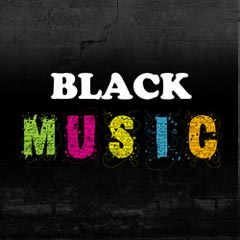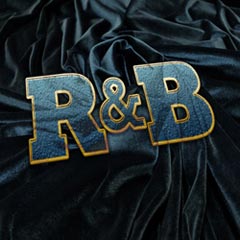40s
The ghost of the war. The 1940s marked a time of drastic change within the music industry. Instrumental innovation meant bands were exploring sound in ways they hadn't before. Big Band emerged, held together by musicians experimenting in harmony and counterpoint within their own improvisatory arrangements. This style dominated the 1940s with an inclination towards jazz albums that has not been seen since. Alongside this, the decade also brought Country, Blues, and R&B to prominence. All provided unique influences upon popular culture for generations to come following the era's conclusion. The generation of '40s shouldn't just be remembered for World War II, but also as a pivotal period for musical experimentation and development.
The Ghosts of War: Remembering the Impact of '40s Music
The 1940s marked a period of tremendous turmoil and change throughout the world. World War II forced individuals and cultures to reevaluate their values and ideologies, resulting in tremendous shifts in art and music. In the United States, the 1940s were defined by seminal musical movements that continue to influence popular music to this day. From big band jazz to blues and R&B, the music of the era reflected the struggles and triumphs of the American people during one of the most significant periods in modern history. In this article, we'll explore the impact of '40s music on popular culture and the music industry itself.
In the 1940s, big band jazz dominated the airwaves, with artists like Glenn Miller and Tommy Dorsey leading the charge. These bands offered the perfect soundtrack to a nation at war, providing a reassuring sense of solidarity and unity. What set big band jazz apart was its emphasis on improvisatory arrangements that allowed instrumentalists to experiment with harmony and counterpoint in ways they hadn't before. The result was music that was unpredictable and exciting, a stark contrast to the formulaic pop songs that would come to dominate the industry in later years.
In addition to big band jazz, the 1940s also saw the rise of country, blues, and R&B. These genres reflected the country's diversity and offered unique perspectives on life and love. Perhaps the most important of these genres was R&B, which paved the way for rock and roll in the following decade. Artists like Ray Charles and Fats Domino brought rhythm and blues to the forefront, showcasing the unique fusion of gospel and blues that would go on to define American music in the 1950s.
Despite the influence of these genres, the '40s are often remembered solely for World War II. However, the impact of '40s music can still be felt throughout the music industry today. From the intricate arrangements of big band jazz to the raw emotion of R&B, the music of the era continues to inspire and influence musicians of all genres. While we can never forget the sacrifices made by those who fought in World War II, it's important to remember the cultural legacy they left behind.
In many ways, the 1940s marked the birth of the modern music industry. Technological innovations, such as the introduction of the LP record and the rise of radio broadcasting, allowed music to be distributed on a scale never before seen. The era also saw the rise of independent labels and the emergence of the music producer as a key figure in the industry. These developments would have profound implications for the music industry in the decades to come, laying the groundwork for the golden age of rock and roll in the 1950s and '60s.
The music of the 1940s offers a window into the past, a glimpse of an era marked by both triumph and tragedy. From the innovative arrangements of big band jazz to the raw emotion of R&B, the music of the era reflects the hopes and struggles of the American people at a time of great upheaval. While World War II will always be remembered as a defining moment of the era, it's important to also remember the impact of '40s music on popular culture and the music industry as a whole. From Glenn Miller to Ray Charles, the music of the 1940s continues to inspire and influence musicians of all genres, a testament to its enduring legacy.






